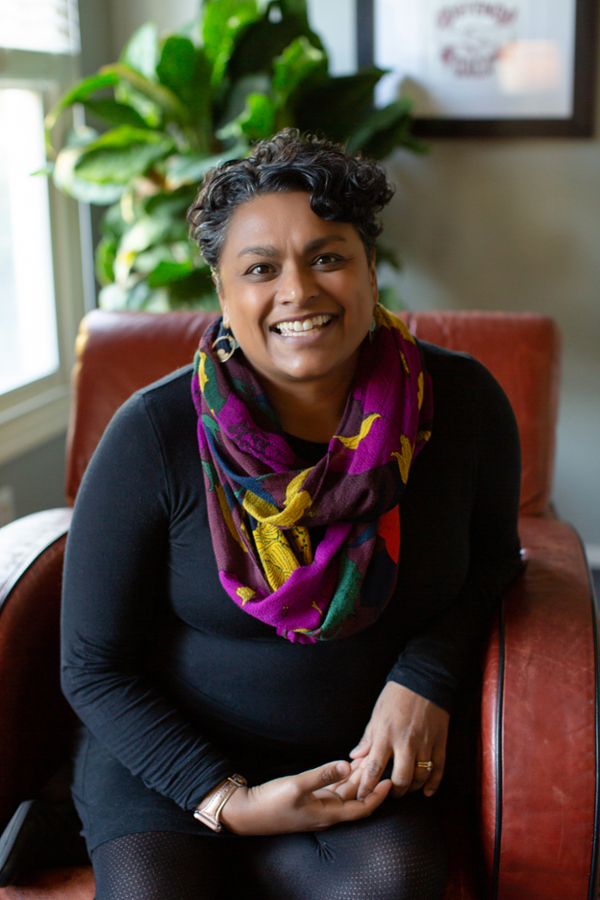Juni Banerjee-Stevens, PhD
Faculty
Butte Hall, Room 213
dbanerjee-stevens@csuchico.edu
"Work gives me a huge sense of purpose. My real reasons for living, though, are my husband and three kids. My hope is to have a hand in creating a world that they all are proud to live in."
JUNI'S BIOGRAPHY
Juni completed her BA in music and English at Stanford University in 1992, and then moved to sunny Minnesota for her graduate studies. She earned her Master’s Degree (2000) and PhD (2009) in Counseling and Student Personnel Psychology from the University of Minnesota-Twin Cities. During her training and after graduation, she worked in the counseling centers of several small private liberal arts colleges, as well as the large, urban campuses of the U of M and Indiana University Purdue University Indianapolis (IUPUI). She recently left her post at the Counseling & Wellness Center at Chico State University where she served as the Clinical Director for four years to start a private practice and consulting business.
Juni's therapeutic philosophy is grounded in her belief that as people we are all doing our best, and that we all are capable of change. She also knows that childhood trauma and/or emotional neglect can hinder a person's ability to bloom, and that healing happens in the context of a trusting relationship.
Like many of us “in the biz,” her theoretical orientation is eclectic, but she can easily say that existential and multicultural counseling theories most deeply inform her work. She is also committed to promoting social justice through the practice of psychology. This stance has guided her work with clients from underrepresented populations, including first-generation college students, LGBTQ, and international students, as well as students who straddle more than one culture (e.g., children of immigrants).
Currently, Juni is obsessed with helping the people who help the people. She knows that being a “wounded healer” allows her to deeply connect with her clients. She also knows that “sensitive” types like herself need to be especially mindful of their wellbeing if they hope to be effective for the long haul. Her focus, therefore, has shifted to developing trainings on compassion fatigue and vicarious trauma for folks in the helping professions.

